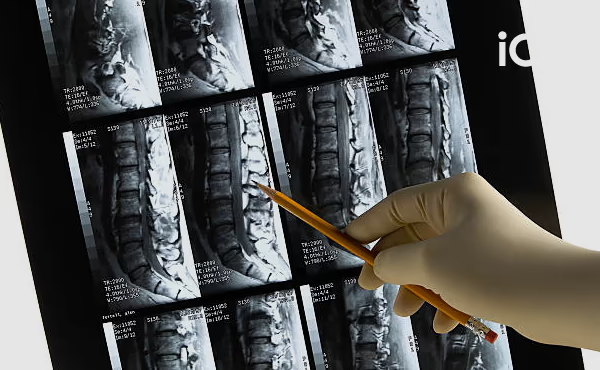A herniated disc occurs when the natural structure of the spinal disc shifts out of place or tears, putting pressure on the nerves. This condition typically manifests with symptoms such as lower back pain, leg pain, and numbness. However, it is essential to note that not every herniated disc requires surgical intervention. In fact, more than 90% of herniated disc cases can be successfully treated with non-surgical methods.

When Is Surgery Necessary?
In certain cases, surgical intervention becomes unavoidable for herniated disc patients. These specific scenarios include:
-
Progressive Muscle Weakness:
- If the patient experiences progressive weakness in their leg muscles, it may indicate severe nerve compression.
-
Foot Drop:
- This occurs when the patient struggles to lift their foot against gravity or cannot lift it at all. Surgery becomes urgent in such cases.
-
Loss of Bladder and Bowel Control:
- Weakness in the sphincter muscles leading to an inability to control urination or bowel movements necessitates immediate surgical intervention. This indicates severe spinal cord compression, and delaying surgery can result in permanent nerve damage.
-
Severe Neurological Deficits:
- If the patient presents with significant neurological deficits, such as numbness or paralysis in the legs, prompt surgery is essential to relieve nerve pressure.
Urgency of Surgery
The conditions mentioned above typically signal severe damage to the nerves or spinal cord. Delaying surgery in such cases can lead to irreversible neurological complications, such as paralysis. Therefore, it is vital to consult a spine surgery specialist immediately if these symptoms occur.
Non-Surgical Treatment Options and Their Effects
If the patient does not exhibit urgent symptoms requiring surgery, non-surgical treatment methods should be the first line of treatment. Common non-surgical options include:
-
Physical Therapy and Rehabilitation:
Regular exercise programs aimed at strengthening muscles and improving flexibility. -
Pain Relievers and Anti-Inflammatory Medications:
Used to alleviate pain and reduce inflammation. -
Interventional Pain Management:
Targeted injections and other minimally invasive procedures to relieve pressure on the nerves.
These treatments are typically trialed for up to six months. However, the duration may vary depending on the patient's condition, symptom severity, and response to treatment.
Why Is Choosing the Right Treatment Important?
Every herniated disc case is unique, and treatment must be tailored to the individual. Therefore, it is crucial to have experienced spine surgeons and pain management specialists evaluate the patient. Collaborative evaluation can prevent unnecessary delays, financial burdens, and irreversible complications.
Patients should have in-depth discussions with their doctors about whether surgery is necessary, the risks of each method, and the expected treatment duration. Additionally, having an accessible doctor for emergencies significantly enhances patient safety.
When Should Surgical Treatment Be Considered?
Surgery may be an option for patients whose symptoms cannot be managed with non-surgical methods, whose quality of life is severely impacted, and who experience persistent pain. Before deciding on surgery, patients should receive detailed information and undergo a comprehensive evaluation to determine the most appropriate surgical approach.
Conclusion
Surgical intervention is not always the first choice for treating herniated discs. However, in certain cases, surgery can be crucial. While non-surgical methods can yield successful results, timely surgical intervention can significantly improve patients’ quality of life. Thus, ensuring that the treatment process is managed by an experienced team and aligned with the patient’s specific condition is essential.

